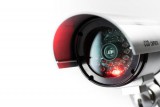A secure office space is necessary for both the safety of your employees and the sensitive documents involved in your business. For a bookkeeping business relationship to thrive, your clients need to be able to trust you—and you need to make sure that your business doesn’t fail on this front. Successful bookkeeping companies always ensure that their client information is never misplaced or mishandled.
Here are the steps you can take to increase the safety and safety of your bookkeeping office space.
Secure your perimeter
The first thing you need to accomplish is securing your physical space. Make sure to accomplish the following tasks:
- Perform risk assessment – If possible, consult with a security company to receive a professional evaluation of your office space’s strengths and weaknesses. Otherwise, thoroughly examine your location for weak spots and check the local news for crime reports. Use this information to analyze what security threats you might face.
- Make a security plan – Map out your office space. Mark all client entry and exit points, employee entry and exit points, and fire exits. Identify areas that need to have better lighting, CCTV surveillance, and lock replacements.
- Determine the security budget – Given your security plan, you can now canvass for CCTV prices, lock replacement services, and lighting fixes. These are all one-time expenses, but their maintenance and the salaries of security personnel need to be included in the annual budget.
- Execute your plans – Armed with a well-mapped-out plan and the equipment you need, you can now implement your security plan.
Orient your employees on security protocol
Now that your bookkeeping business’s location is secure, you need to focus on security inside your area.
When you’re handling sensitive information like payrolls, bank loans, and inventories, everything inside your office should be protected and every move should be documented.
Here’s what you need to do:
- Install a sign-in system – Use a sign-in system to monitor who enters and exits your office. You will likely be hosting client meetings or entertaining in-person inquiries; having documentation of who comes and goes will give you a written record of everyone who enters your office space. This is particularly useful in the event of a security breach; a sign-in system will help confirm the presence of persons of interest.
- Secure important equipment – Any company devices or equipment should be in a safe location and should require company identification before being used. No employees should be allowed to bring home equipment, documents, and devices. Documents should not be on full display, especially in areas where nonemployees are permitted.
- Get everyone updated on security protocol – Create a security protocol and make sure all employees are oriented. For instance, ensure that the last person who leaves the office locks up all important documents, examines the whole area, and turns off electricity before leaving the office.
- Create emergency evacuation plans – Have emergency evacuation plans on hand, and properly orient all employees. Regularly conduct earthquake drills, if possible. Ensure that all essential documents are retrievable in cases of emergency.
Invest in digital security
Most of your company’s important documents are probably saved on computers, from client files to business permits. All of the company’s digital data and assets, including your website and social media, should be secured to avoid security breaches.
Here are some tips to follow when it comes to strengthening digital security:
- Install strong firewall and antivirus technologies.
- Block malicious and unsafe websites, such as torrenting and streaming sites.
- Encourage all employees to use strong passwords.
- Change passwords every few months.
- Encrypt files and data.
- Regularly back up all systems and files.
- Disable printer sharing and wireless printing as some information is temporarily stored on printers when using these features.
Stay on top of security maintenance
You know what they say: hope for the best, but prepare for the worst. There’s no such thing as being too careful when you’re running a bookkeeping firm.
- Routinely check your office’s security features. Repair any broken locks, lights, or cameras at once.
- Make it a point to update your employees about scams, schemes, and other potential security threats.
- Ask IT to report attempted security breaches immediately.
More than anything, make sure your employees are aware of your business’ security. Clients will inevitably ask about how you plan on keeping their information safe; it’s essential to have all that information on hand.
Keeping your bookkeeping business secure is key. When your clients feel safe and reassured, they’re more confident in trusting you. And with these tips on securing your office space, you’ll have no problem securing success in no time, too.


